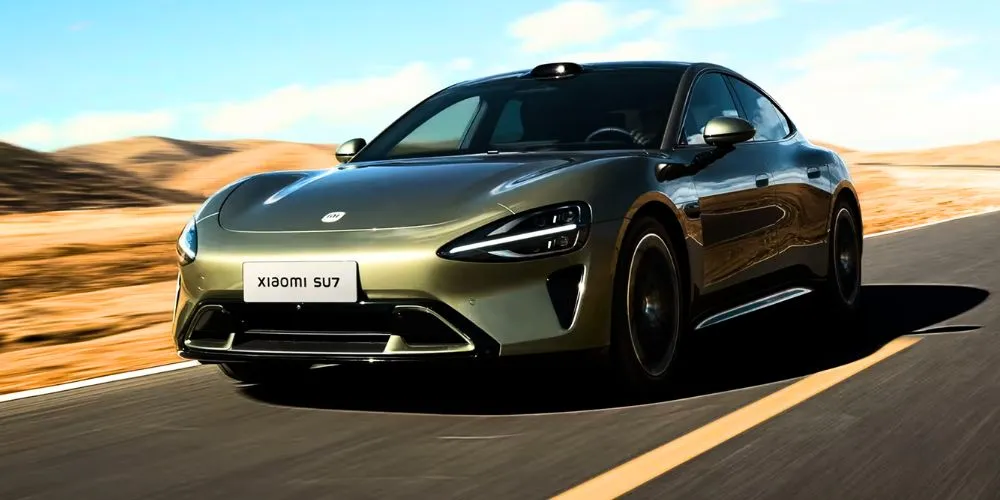Key Points:
- Xiaomi announces its first EV, the SU7. Orders will be accepted through Xiaomi’s 59 stores in 29 cities, and a launch event is scheduled for March 28.
- The SU7 Model sedan is equipped with “super electric motor” technology, aiming for acceleration speeds faster than Tesla and Porsche EVs.
- Xiaomi’s EVs will be produced by a unit of state-owned automaker BAIC Group in a Beijing factory with a capacity of 200,000 vehicles.
- Xiaomi plans to invest $10 billion in the automotive sector over the next decade, diversifying beyond its core smartphone business.
On Tuesday, Chinese tech giant Xiaomi announced that it will commence deliveries of its first electric vehicle (EV), the SU7 Model, later this month, marking the company’s entry into the competitive Chinese EV market. Xiaomi, known as China’s fifth-largest smartphone maker, revealed plans to kick off orders through its 59 stores across 29 cities, with a launch event scheduled for March 28, where the SU7’s pricing details are expected to be unveiled.
Xiaomi’s foray into the EV sector comes amid a robust price war in China’s auto market. The smartphone manufacturer has witnessed a positive market response, with its shares surging 7% during morning trade following the announcement. As Chief Executive Lei Jun stated during the unveiling of the SU7 sedan in December, the company aims to position itself among the top five global automakers.
The SU7 Model is promoted as featuring “super electric motor” technology, capable of delivering acceleration speeds surpassing those of electric vehicles from Tesla and Porsche. Analysts suggest that the car’s shared operating system with Xiaomi’s smartphones and other electronic devices will likely appeal to the company’s existing customer base, creating synergy between its tech products and the new EV.
Xiaomi’s diversification into the EV sector aligns with its strategy to expand beyond the smartphone market. The company first signaled its entry into the electric vehicle market in 2021, with a commitment to invest $10 billion in the automotive sector over a decade.
A unit of the state-owned automaker BAIC Group will handle the production of Xiaomi’s electric cars in a Beijing factory with an annual capacity of 200,000 vehicles. Xiaomi’s venture into the EV market has gained approval from Chinese authorities, a noteworthy achievement in a market where new players have faced resistance due to concerns about oversupply.
China’s electric vehicle sales increased 18% in the first two months of this year, closely following the 21% growth observed throughout 2023. The market has recently experienced intensified price competition, with major players like BYD implementing significant price cuts to attract consumers amid softer domestic demand.





